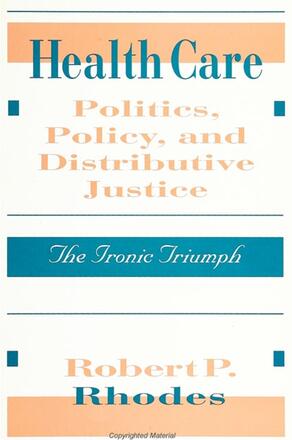
Health Care Politics, Policy, and Distributive Justice
The Ironic Triumph
Alternative formats available from:
Description
This book describes and evaluates power and influence in the creation, administration, and distribution of health care in the United States. His work is uniquely concerned with distributive justice as well as power. Who ought to receive more (or less) health care? How should we decide these distributions? Such questions are addressed in works of philosophy with little attention to political, legal, and economic analysis of budget dilemmas, professional and industrial politics, and technology. This volume takes the issue a step further by placing health policy issues in the broader context of American politics, illuminating the conflict between health resources and other needs, and evaluating the trade offs.
Robert P. Rhodes is Professor of Political Science at Edinboro University of Pennsylvania. He has also written The Insoluble Problems of Crime and Organized Crime: Crime Control Versus Civil Liberties.
Reviews
"Rhodes has done a very good job of showing how political decisions quite literally allocate life or death. His use of political science concepts to explain the perplexing nature of health policy problems provides insight that is frequently missing in the discussion of public policy problems. " — Fred Meyer, Ball State University
"This book offers a thoughtful discussion of the economic and political constraints and resources for providing health care. Its greatest contribution is in synthesizing diverse materials that are relevant to each other but seldom interrelated. " — David H. Smith, Indiana University